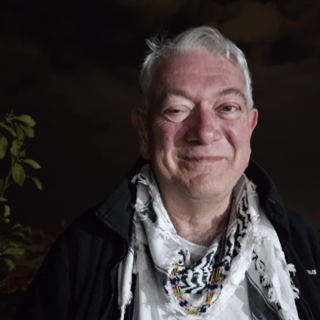David's story

People are cool about mental health - until they're not.
I was diagnosed with bipolar disorder some 20 years ago. Bipolar disorder is a ‘severe and enduring’ mental health condition. It has severely impacted my life - my career, my finances, my relationships.
People can sometimes relate to something like depression. Often, they will have been through it themselves.
But there is a side to bipolar disorder that does not fit this familiar pattern. Along with the crushing and even life-threatening depressions, I have experienced periods of increased activity and elevated mood. Perhaps to the onlooker these look like fun. They are not. They can become so uncontrolled that they manifest as life damage. It can get messy.
I used to be super open about my illness. Too open. I came to realise that most people just don’t know what I mean by bipolar disorder. Some just don’t care. So now I only disclose to people I feel safe with. I’m not always up for explaining my illness from a standing start.
I used to work for a shipbuilder - a masculine and uncaring environment if ever there was one. Nevertheless, I decided to be open about my illness. I reasoned that it would be helpful to explain my periodic absences, mainly when depressed. I even kidded myself that my openness made me some kind of mental health ambassador. It was a mistake. Nobody understood. Nobody cared. I was left to perform the emotional labour of educating my coworkers on my own. My career stalled - then foundered - partly due to the malign ignorance of one particular manager. I discovered that stories were circulating about my more ‘amusing’ episodes.
And never once did I receive a ‘Get Well’ card.
It can be done better. I no longer work for money - there’s stigma there, too - but during the COP26 conference I volunteered with a community group. I had quite a pivotal role. It was a frenetically busy time, and I feared that the excitement was triggering an episode. When I confided in the main coordinator, she simply asked ‘What does that look like and how can we help you?’ Some people just get it.
I have internalised a lot of stigma for the ways in which my illness has led me to behave. I talk about ‘The Bipolar Cringe’ - the intense shame and embarrassment for things said and done. Years down the line I have avoided people and places I associate with my episodes.
I fairly recently lost a social circle - I guess I can’t really call them friends. My daughter was seriously ill in hospital and the stress of this triggered an episode - though a very mild one. I had a disagreement with one of them - not impolite - but I guess I must have got a bit too relentless. I was cancelled. Can we call this stigma? It certainly feels like it is.
My truest friends don’t stigmatise me. They are the ones who have stood by me throughout my illness - despite experiencing me at my most erratic and challenging. I have a regular zoom catchup with three of them and recently the topic of my bipolar disorder came up. It rarely does. I explained that all the outrageous and unfortunate things they have seen me do over the years have been due to my illness.
“Yes, we know,” said my friend, “But we still love you.”
David is a member of Bipolar Scotland, Scotland’s leading charity focused on supporting those experiencing Bipolar and their friends and family. Find out more about their work.
Bipolar Scotland